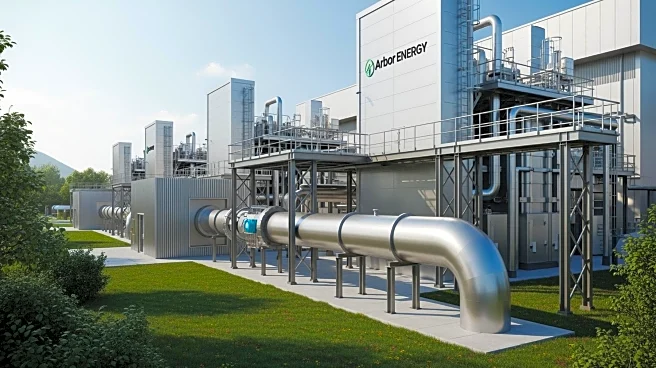What's Happening?
Arbor Energy, a startup founded by former SpaceX engineers, is expanding its power plant capabilities to include natural gas alongside biomass. The company raised $55 million in Series A funding led by Lowercarbon
Capital and Voyager Ventures. Arbor's power plant, initially designed to burn plant waste, will now also utilize natural gas to meet growing electricity demand from data centers. The plant employs oxy-combustion technology to capture carbon dioxide, which is cheaper to store due to tax credits. Arbor is committed to working with natural gas providers certified for low leakage rates to minimize the climate impact of its operations.
Why It's Important?
Arbor Energy's shift to include natural gas in its power plant operations reflects the growing demand for reliable energy sources to power data centers, which are crucial for technological advancements. The company's focus on carbon capture aligns with global efforts to reduce greenhouse gas emissions and combat climate change. However, the use of natural gas raises concerns about methane leakage, a potent greenhouse gas. Arbor's approach to minimizing leakage rates is critical to ensuring the environmental sustainability of its operations. The funding and expansion efforts highlight the intersection of energy innovation and climate responsibility.
What's Next?
Arbor Energy is in the process of building its power plant in Louisiana, funded partly by a $41 million deal with Frontier, backed by Stripe and Google. The company aims to remove 116,000 tons of carbon dioxide by 2030. As Arbor continues to develop its technology, it will need to address the challenges associated with natural gas usage and ensure compliance with environmental standards. The success of its carbon capture initiatives could set a precedent for other energy companies seeking to balance energy production with climate goals.
Beyond the Headlines
Arbor Energy's expansion into natural gas usage raises ethical considerations about the trade-offs between energy demand and environmental impact. The company's commitment to low leakage rates is crucial in mitigating the negative effects of methane emissions. This development also highlights the broader industry trend of integrating carbon capture technologies to address climate change, emphasizing the need for innovation in energy production and sustainability.










